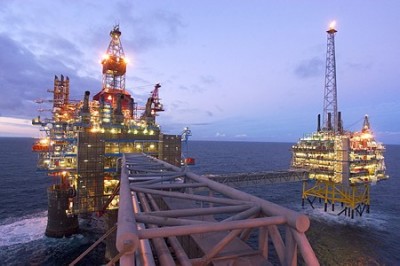Norway’s huge sovereign wealth fund, known as the oil fund since it’s fueled by the country’s oil revenues, is being grilled once again, this time over its investments in coal. While environmentalists want the fund to dump its coal mining stakes, some economists do, too, warning that they can become unprofitable as well as damaging for the planet.

Oil fund officials have themselves claimed that the fund’s coal holdings are “limited and in decline.” Yngve Slyngstad, chief executive officer of the fund, said in January that they’d been cut in half over the past two years. Next week, a special commission is due to evaluate whether the fund, a powerful player in international investment circles, should sell off or at last drastically reduce its remaining stakes in fossil fuels like coal, oil and gas, for the sake of the environment.
Now a new report compiled by environmental organizations claims the oil fund actually has invested more than NOK 82 billion in coal and coal-related companies, and that these investments have increased by nearly NOK 10 billion the past two years. Newspaper Aftenposten reported Tuesday that the report from Greenpeace, Framtiden i våre hender (The Future in Our Hands) and Urgewald of Germany contrasts sharply with Slyngstad’s own assessment. He said at a hearing on coal investments in January that at the end of 2013, the fund had invested NOK 2.5 billion in what the fund itself classifies as “coal producers,” or mining companies that extract coal.

That figure only covers actual coal mining companies, not companies that derive less than half of their revenues from coal, companies that produce gas and fuel from coal or coal-fired power companies. The fund’s classification doesn’t include, for example, RWE of Germany, which is considered the world’s ninth-largest coal producer. According to the new report, the oil fund has ownership stakes in a total of 156 coal companies that produce 3.2 billion tons of coal annually. Norway’s oil fund also owns stakes in seven of the world’s 10 largest coal producers and in 30 of the 40 companies that have the largest coal reserves.
“I almost get sick to my stomach when I see how much the oil fund has invested in coal,” Arild Hermstad of Framtiden i våre hender told Aftenposten. He claimed that Slyngstad “has long downplayed” coal’s share of the fund.
Oil fund officials strongly disagree. Spokesman Thomas Sevang told Aftenposten that Slyngstad made it clear at the hearing before the parliament’s finance committee in January that the fund had various forms of exposure to coal. Hilde Singsaas, communications director for Norway’s central bank, which has responsibility for oil fund, called the criticism from the environmentalists “groundless.” She stressed that Slyngstad correctly informed Members of Parliament, noting that it was complicated to define coal investments because many companies in which the fund invests are exposed to the coal sector. The fund’s total share of investment devoted to coal has also fallen, as Slyngstad indicated.
Risky returns regardless
Meanwhile, the fund faces not only climate issues regarding its coal investments but also financial risk, according to economist Dimitri Zenghelis, a researcher at the London School of Economics and chief economist for the UN project New Climate Economy. He told newspaper Dagens Næringsliv (DN) on Tuesday that the oil fund’s investment managers are taking a major risk with Norwegians’ pension money (which the fund was set up to secure for future generations) because of the uncertainty over fossil fuel values in the years ahead.
Coal prices, for example, have plummeted this year and just this week, Norway’s own Store Norske coal mining company announced it was closing a mine on Svalbard, reducing operations elsewhere and laying off 100 workers, after suffering heavy losses. The coal business is also depressed in other areas of the world, as the shift to renewable energy begins. Some of the US’ largest coal companies have seen the value of their stock plummet in line with coal prices. Coal is not cool, and it’s also facing tough competition from the gas market, especially in the US.
Last week, another major Norwegian pension fund, KLP, announced it was selling off its coal investments and investing more than half-a-billion kroner in renewable energy. The commission studying the oil fund’s investments has been charged with examining the consequences of a similar strategy for the oil fund. Its investments can have a major impact on the coal industry, simply because it’s so big, and a move away from fossil fuels can send a strong signal to other investment funds. Slyngstad also is under pressure to boost the oil fund’s returns, which can be hindered not only by unprofitable coal ventures but also by the fund’s own rules on investing.
Many experts believe Norway’s oil fund can play a major role in helping reverse climate change, by pulling out of fossil fuels that spew out carbon emission and investing instead in renewable energy. “If the profits from oil are used to build a new world, a better world, I would praise Norway,” prominent researcher Hans Joachim Schellnhuber told DN. “But if the money is reinvested in oil and gas, I would say that Norway is part of destroying the world.”
newsinenglish.no/Nina Berglund

